The illegal trade in elephant ivory
- Published
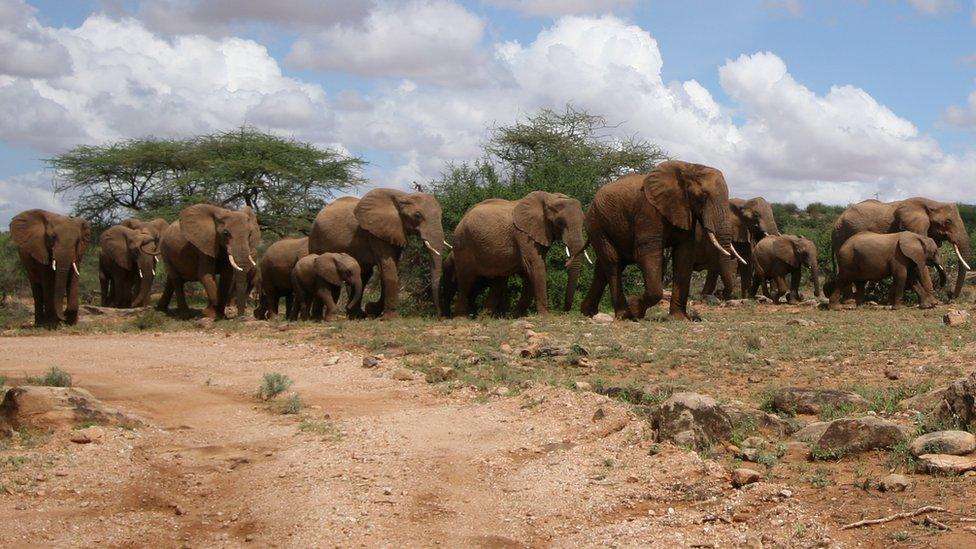
These African elephants may be roaming around happily, but the ivory in their tusks is in big demand - and poachers will kill the animals to get it. A BBC Panorama programme has found that elephant poaching is rising sharply.
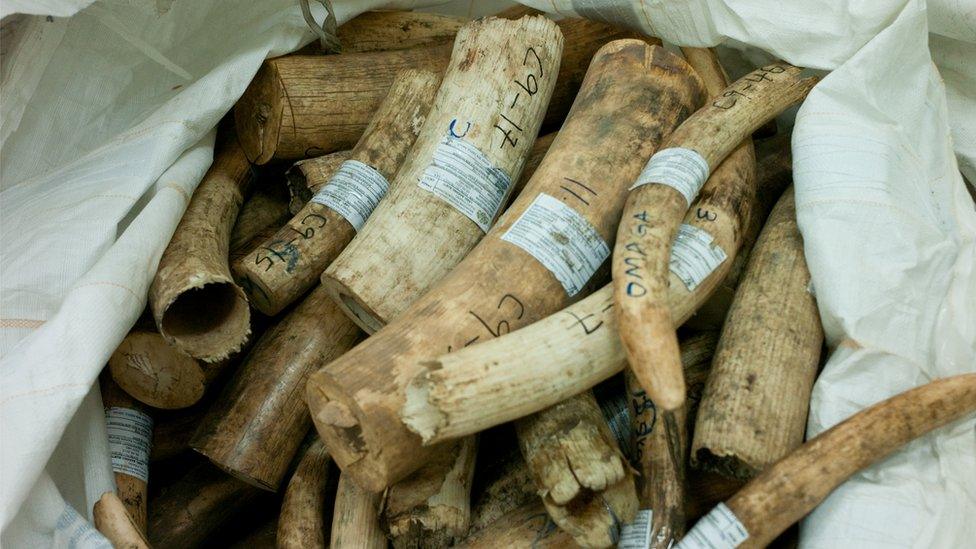
In 1989, international ivory trading was banned, but this didn't stop people from doing it illegally. This bag of tusks was seized before it made its way to the shops.
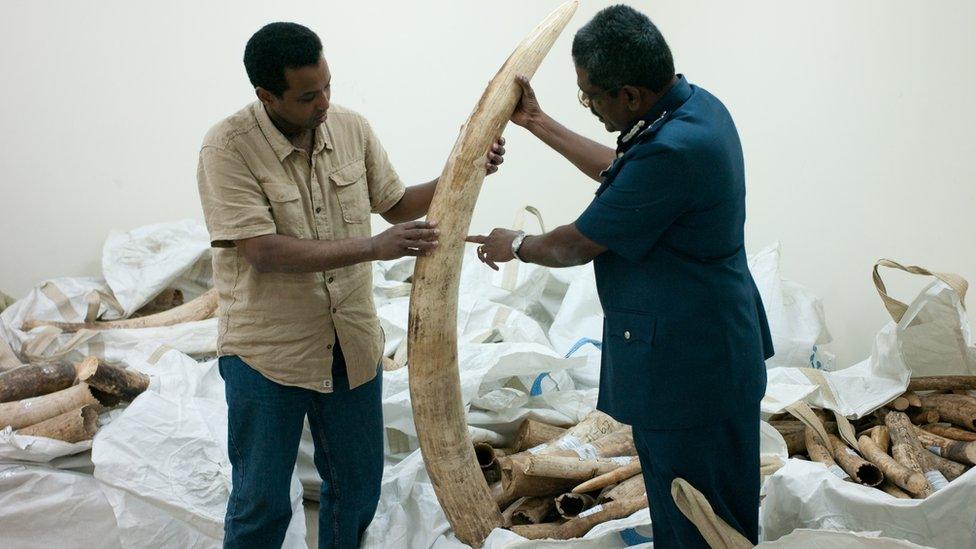
Last year large collections of illegal ivory were seized - the most over 20 years. A large elephant tusk like this one can go on to sell for thousands of pounds.
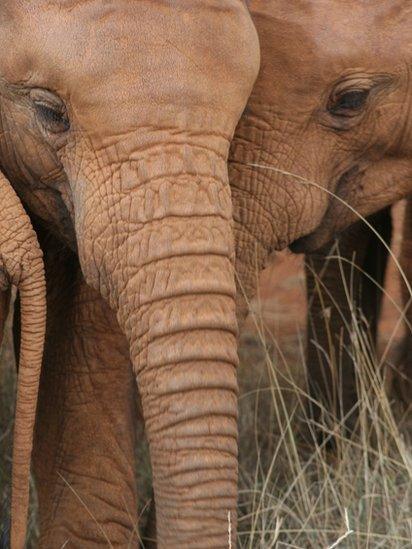
These young animals are being cared for in an elephant orphanage in Kenya. Their parents were killed by poachers, for their tusks.
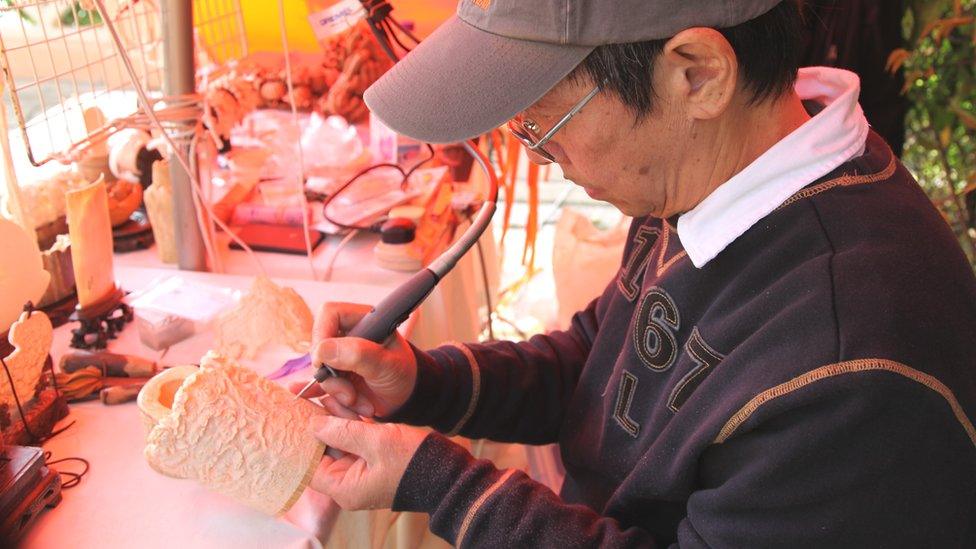
Not all ivory is illegal though; this man is making a carving from legal ivory - that's ivory that was bought before the 1989 ban. Ornaments like these are one of the ways the material is used and a country where it is still in big demand is China.
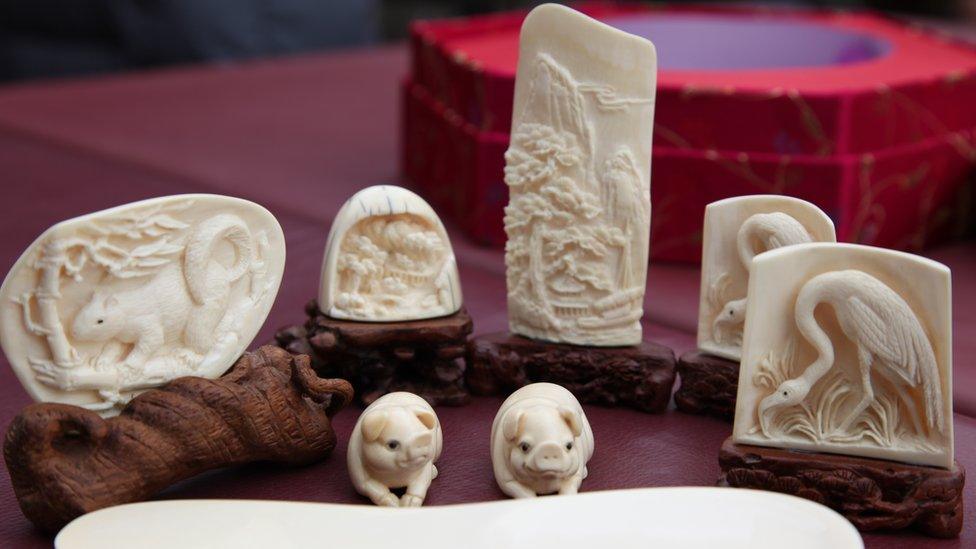
But it's difficult to determine ivory that is legal, like the ivory these ornaments are made from, and poached ivory. This makes the fight against the illegal trade very difficult.
